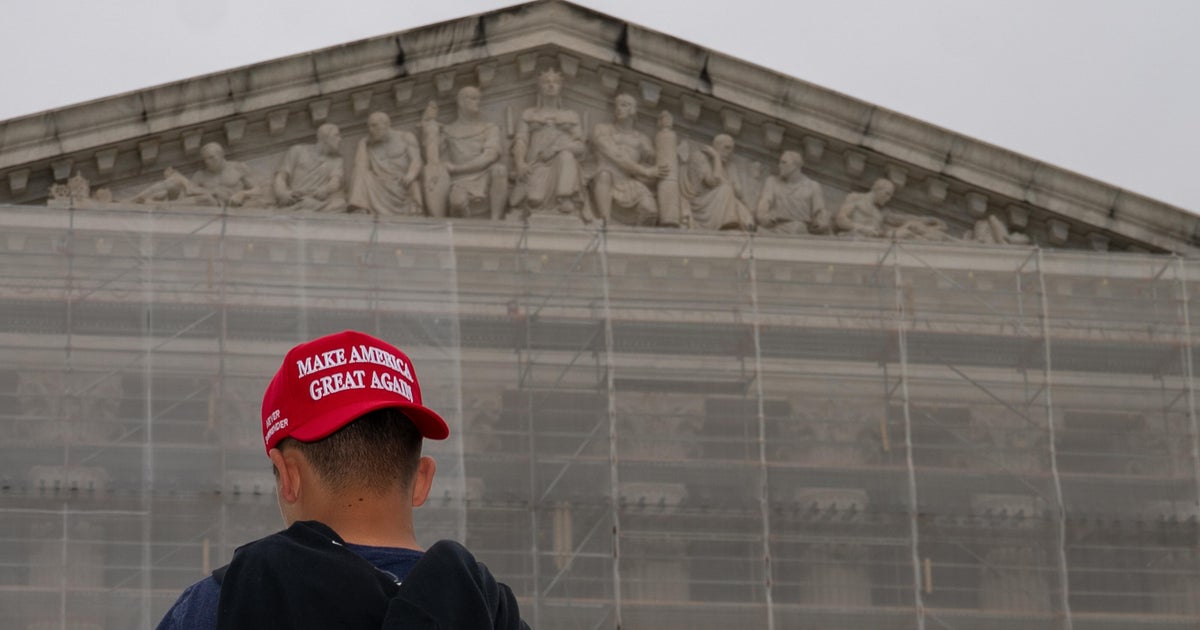
Washington — The Supreme Court is gearing up to begin its new term on Monday, setting the stage for a series of pivotal cases that touch on pressing social issues and the legacies of former President Donald Trump’s policies. Among the significant matters to be deliberated are a challenge to the controversial practice of “conversion therapy” for minors, the implications of race in redistricting, and state laws that restrict the participation of transgender athletes in girls’ sports.
This term, however, is not just about social justice; it also encompasses a review of several legal battles surrounding Trump’s administration. Two key cases directly linked to his policies are on the docket, with the potential for further controversies to emerge.
As the justices return from their summer recess, they are greeted by a backdrop of emergency appeals filed by the Trump administration concerning various policy initiatives, including contentious immigration policies, the cancellation of research grants, and significant layoffs of federal employees. While Trump has found some success with these emergency appeals, the Supreme Court’s evaluation of the actual merits of his policies remains uncertain.
Law professor Allison Orr Larsen from William & Mary noted, “Most Americans aren’t following the technicalities on the emergency docket, and so they just think the court is siding with the Trump administration every time. Once the cases are back up before the justices and decided on the merits, that’s going to do a lot to either cement that assumption or upset that assumption.”
The first major test of Trump’s policies will occur on November 5, when the Court considers the legality of his sweeping reciprocal tariffs, a cornerstone of his economic strategy. The justices will also weigh in on whether Trump can dismiss a Democratic-appointed member of the Federal Trade Commission without cause—a ruling in his favor could undermine congressional protections intended to shield independent agencies from political interference.
The Supreme Court, currently holding a 6-3 conservative majority, is also facing a request to assess the constitutionality of Trump’s executive order aimed at ending birthright citizenship. The timeline for a decision on this matter remains unclear.
Roman Martinez, a lawyer with experience arguing before the Supreme Court, anticipates that by next summer, “the theme is going to be that the court had to confront an energetic executive, very expansive assertions of authority across this whole range of issues.”
As the term unfolds, the docket is expected to be filled with high-stakes cases that challenge the executive actions of the Trump administration alongside critical social issues. Larsen pointed out that “the docket is already full of blockbuster cases, and that list is going to grow as challenges to the president’s executive orders find their way back to the justices after having been dealt with on the emergency docket.”
Here are some of the major cases the Supreme Court will hear this term:
**Conversion Therapy Ban**
The Court will hear arguments on October 7 regarding a Colorado law that bans “conversion therapy” for minors. This law, enacted in September 2019, prohibits practices that aim to change an individual’s sexual orientation or gender identity. Violators could face fines and potential loss of their professional license. The case emerged from a lawsuit filed by Kaley Chiles, a counselor who seeks to provide faith-based therapy to young clients but fears legal repercussions under Colorado’s law.
**Redistricting and Race**
On October 15, the Supreme Court will revisit the Louisiana congressional map drawn following the 2020 Census. This time, the stakes are significant: the justices are tasked with determining whether the Constitution permits a state to intentionally create a second majority-minority congressional district in compliance with the Voting Rights Act. The case highlights the complexities of balancing Section 2 of the Voting Rights Act with the 14th Amendment’s Equal Protection Clause.
**Trump’s Tariffs**
Earlier this year, Trump announced sweeping tariffs on imports from numerous countries, claiming they were necessary to address chronic trade deficits. A coalition of 12 states and small businesses challenged these tariffs in court, arguing that Trump’s use of the International Emergency Economic Powers Act did not grant him the authority for such broad actions. A federal appeals court ruled against Trump, and the Supreme Court has agreed to expedite the review of this case.
**Transgender Athlete Participation**
Following a June ruling that upheld a Tennessee law restricting certain medical treatments for minors with gender dysphoria, the Supreme Court will now decide if states can ban transgender athletes from competing in girls’ and women’s sports. Cases from Idaho and West Virginia will test the constitutional guarantee of equal protection and the implications of Title IX.
**Executive Authority and Dismissals**
Trump’s efforts to overhaul the executive branch include attempts to remove Democratic-appointed officials without cause, raising questions about presidential power and congressional authority to establish removal protections. The Court will deliberate on cases that challenge the legality of such dismissals, including Trump’s attempt to remove a member of the Federal Reserve Board.
As the Supreme Court embarks on this new term, the outcomes of these cases will not only shape the legal landscape but also reflect broader societal values and the ongoing struggle for civil rights and equity in the United States. The combination of social justice issues and executive authority challenges promises a term filled with contentious debates and critical decisions that could resonate for years to come.


